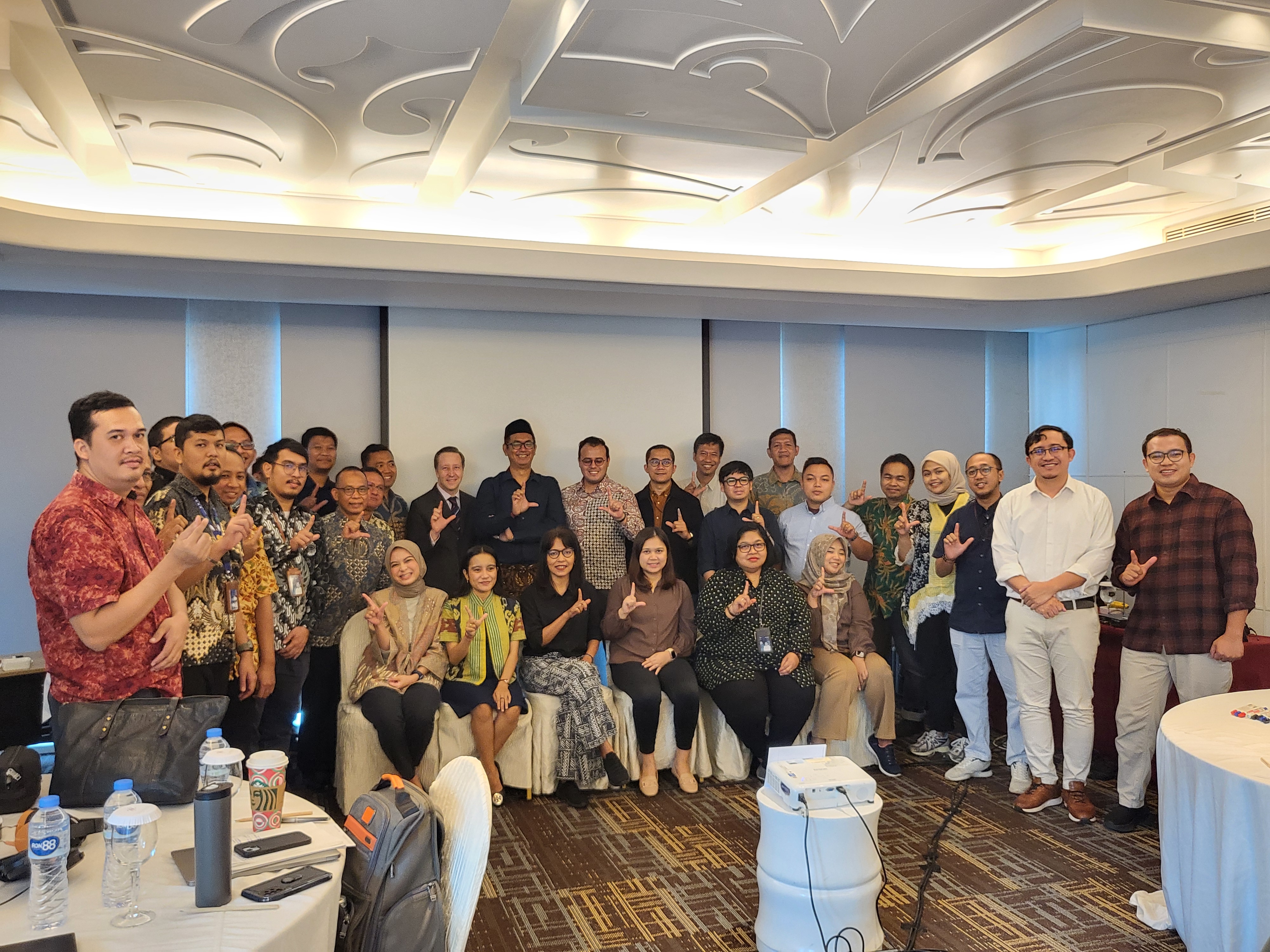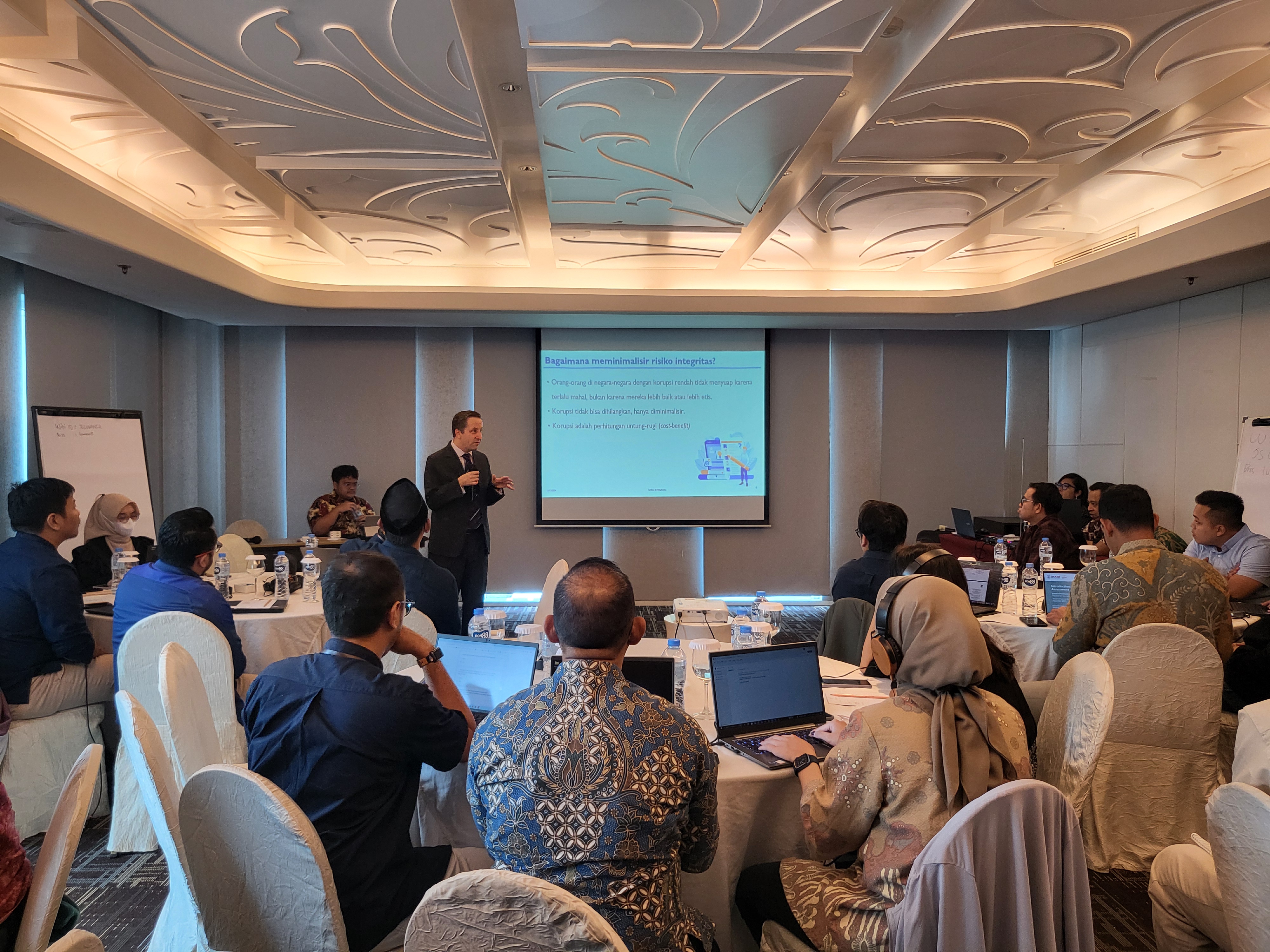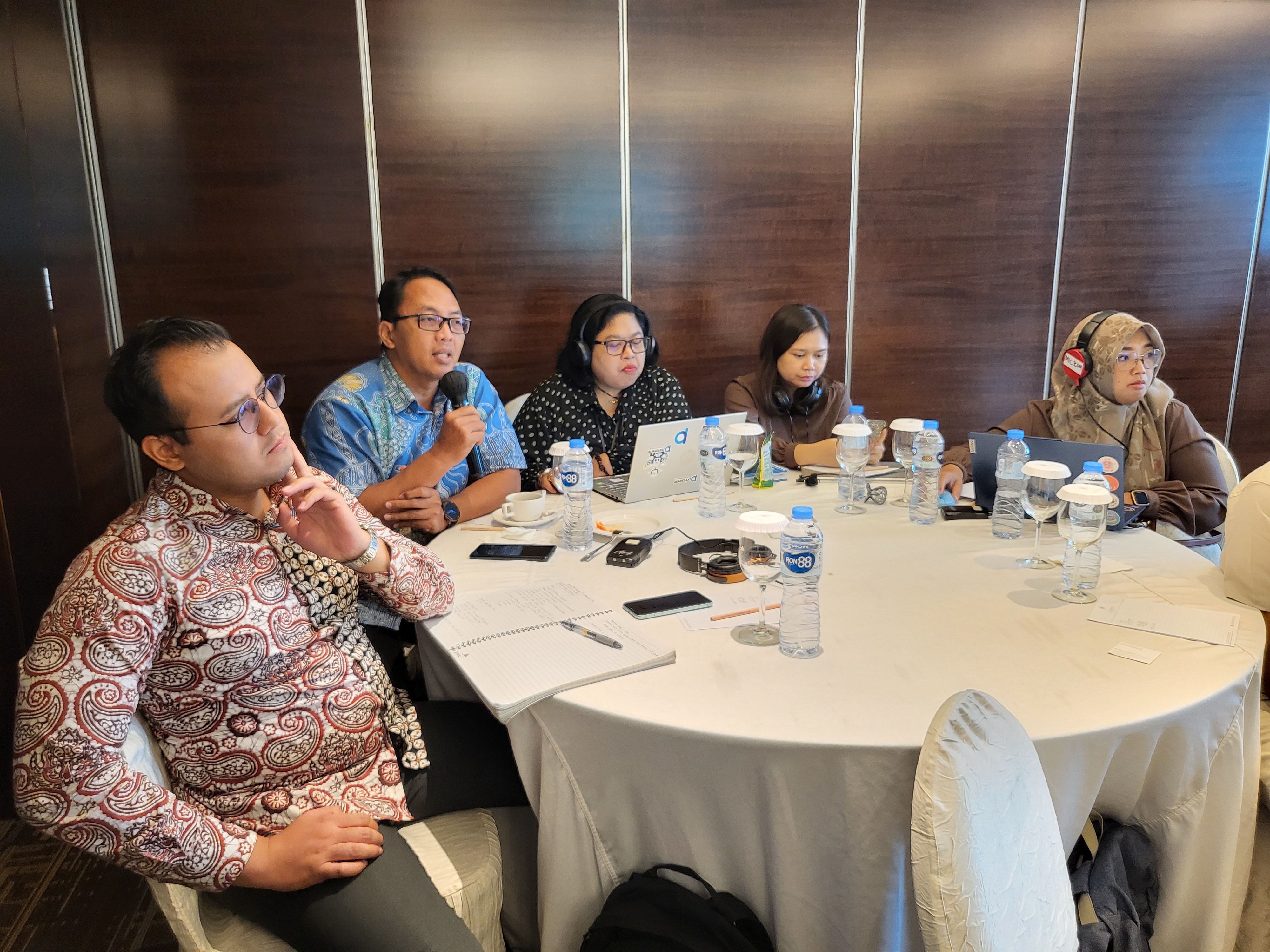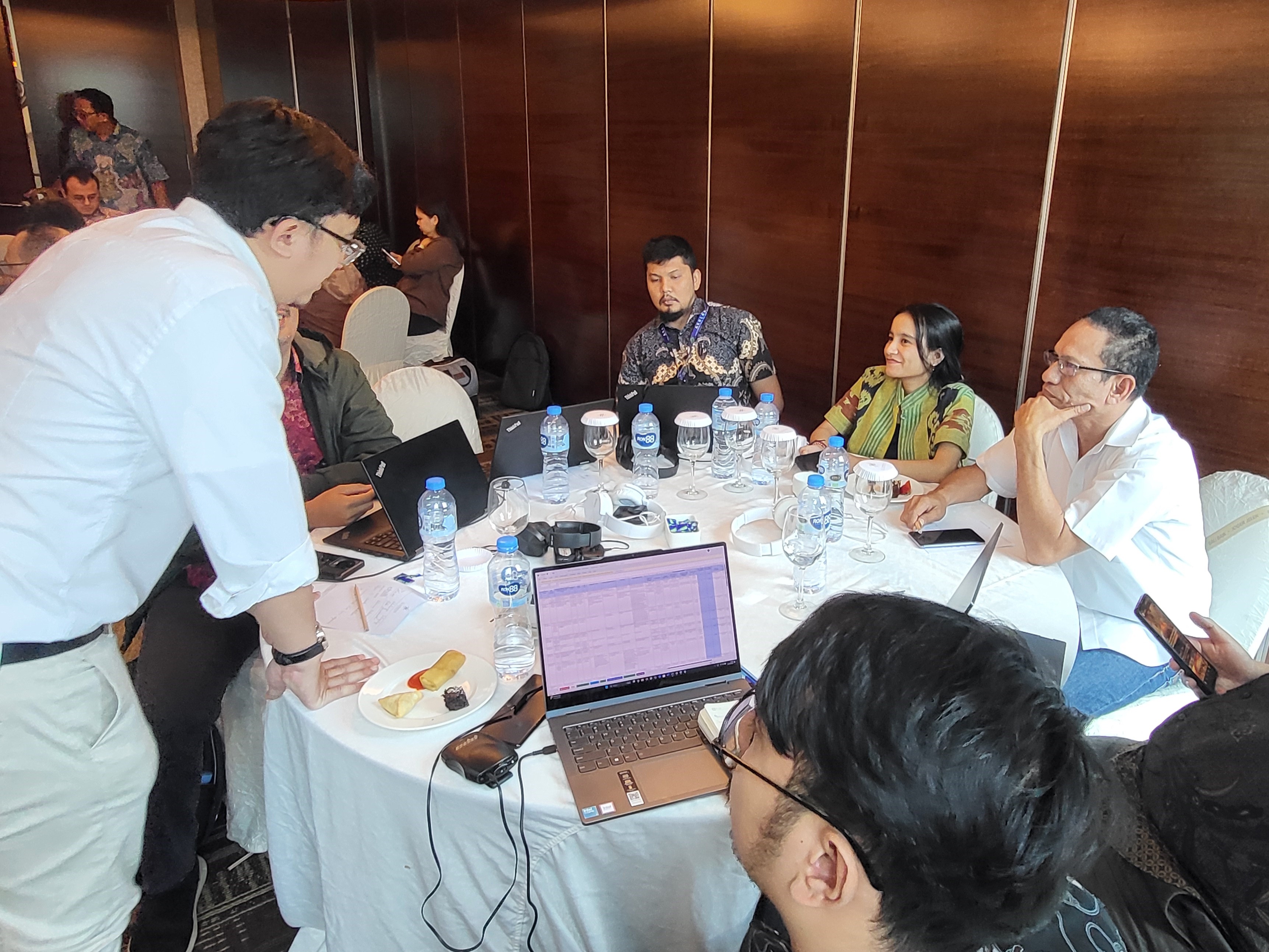How integrity risk assessments can support Indonesian SOEs in reaching their goals

Integrity risk assessments help shine a light on a significant category of threats to the operations or reputation of a private company or state-owned enterprise (SOE). They enable these risks to be prioritised and mitigated in a controlled and strategic way.
With this in mind, and with the support of USAID INTEGRITAS, we recently conducted a two-day training on integrity risk assessments for Indonesia's state-owned enterprises. A separate three-day training was designed specifically for Perhutani, an SOE that manages forest resources on Java and Madura islands and that is our main SOE partner in Indonesia.
An innovative risk assessment methodology
Our integrity risk assessment methodology was designed in-house based on our experience in different fields, such as corruption prevention, law enforcement and prosecution. In brief the methodology focuses on:
- mapping processes inside an organisation;
- analysing the degree to which they are subject to integrity risks;
- assessing the severity and impact of the risks by quantifying them;
- prioritising these risks; and
- developing mitigation measures to address them.
Indonesia’s strategic sectors represented
A total of 62 participants from 15 SOEs participated in the two parallel trainings. The SOEs in attendance represent a diverse range of Indonesia’s strategic sectors, including finance (Danareksa, Indonesia Financial Group – IFG, Bank Rakyat Indonesia – BRI), energy and infrastructure (Perusahaan Listrik Negara – PLN, PT Sarana Multi Infrastruktur – SMI), and forestry and plantations (PT Perkebunan Nusantara III – PTPN, Pupuk Indonesia, Perhutani).
Two SOEs owned by provincial/city governments (PT MRT Jakarta and Perumda Air Minum Kota Kupang) also joined the event.
The training served as an introduction to our integrity risk assessment methodology, highlighting its potential to be used across Indonesia.
Feedback highlighed practical value
The training received positive feedback: participants found it both engaging and informative, as well as useful for their day-to-day compliance work. It provided valuable insights into assessing and mitigating risks, ultimately contributing to corruption prevention efforts.
One participant from an energy-related SOE said:
“The training is very useful in increasing knowledge of compliance management and also a solid platform for sharing experiences between SOEs in managing and mitigating risks.”
A participant from a banking SOE also praised the training, stating that it was highly beneficial for enhancing compliance and risk mitigation within her company. They also expressed interest in participating in future sessions and said they hoped to delegate more staff to attend upcoming trainings.
The two trainings were made possible through the support of USAID INTEGRITAS. In his opening remarks, INTEGRITAS Agreement Officer’s Representative Ahmad Qisa'i emphasised the consortium's commitment to supporting SOEs in their efforts to prevent corruption in Indonesia. He highlighted that the integrity risk assessment methodology can help SOEs effectively identify and mitigate corruption risks that arise in vulnerable business processes.
Qisa'i also reiterated USAID INTEGRITAS' openness to collaborating with a broader range of SOEs to enhance integrity measures, particularly by addressing conflict of interest issues in the hopes of achieving a corruption-free Indonesia.





